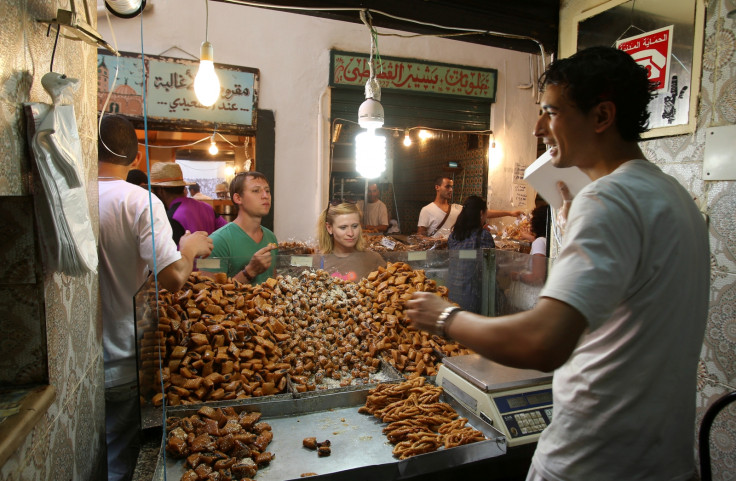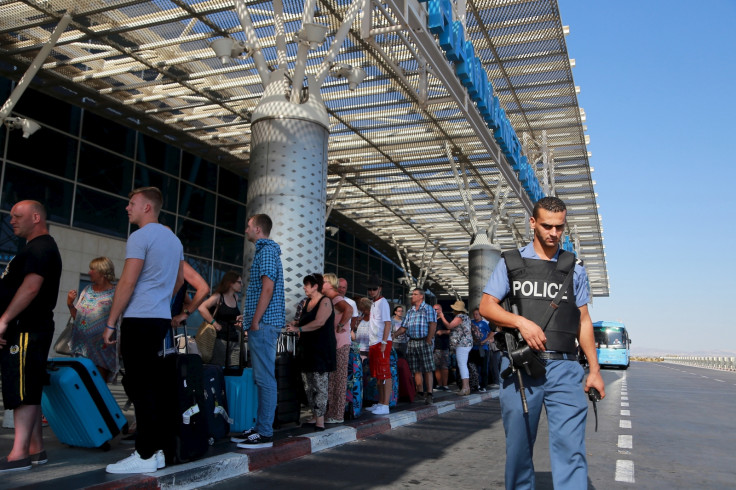One year after the Sousse massacre, Britain must remove its travel ban on Tunisia
The country is reeling from a drop off in tourists after ISIS attacks in 2015

Exactly one year ago today, Seifeddine Rezgui strolled onto the beach in front of the Royal Marhaba Hotel in Sousse, pulled out a Kalashnikov rifle concealed inside an umbrella, and began shooting. By the time he finished his rampage, 38 innocent victims, including 30 Britons, were dead.
The attack not only snatched away the lives of many tourists, but rocked Tunisia's tourism industry. Britain's Foreign and Commonwealth Office (FCO) placed a travel advisory on Tunisia, causing British tourism to the country to decrease by 90% in the first four months of 2016 compared to the same period last year.
This politically pragmatic move made sense at the time. It allowed the UK a chance to save face and show that it was protecting its citizens abroad. However, the travel advisory has not been lifted since, even though the protection of tourists has vastly improved.
In fact, there have been no attacks on tourists since the Sousse attack and Tunisia is no longer a major danger zone for tourists. Instead of maintaining the warning for Tunisia, the UK government should lift its travel advisory in order to get its citizens back to traveling to Tunisia and supporting its struggling economy.
In Tunisia, tourism contributes 7% directly and 15% indirectly to the national GDP. British citizens previously made up a large proportion of the travelers to Tunisia.
Britain's travel advisory on Tunisia is particularly problematic as it prevents British travelers from getting travel insurance for their trips to Tunisia. Both the Thomas Cook and Thomson holiday package providers stopped all of their trip offerings for Tunisia, citing the travel advisory as the reason. This is precisely why visits from British tourists to Tunisia have almost fully dwindled. It is understandable that the UK government wants to protect its citizens, but politics appear to have gotten in the way of this "protection".
In the deadly Paris attacks in November of last year, attackers killed 130 people, with 89 being murdered at the Bataclan theatre alone. On the UK Government Travel website, the FCO warns of possible terrorist attacks against British citizens. However, the office has not placed a full travel advisory on the country of France, which would prevent British tourists from getting travel insurance. Instead, it lauds the French government for establishing a smartphone app that informs users of possible security threats.

In contrast, a full travel advisory remains in place for the whole country of Tunisia. The page reads, "a further terrorist attack is highly likely" and "we do not believe the mitigation measures in place provide adequate protection for British tourists in Tunisia at the present time". Here is where the juxtaposition becomes so apparent.
More than double the victims died in the Bataclan theatre alone compared to the Sousse attack, but only one country is deserving of a travel advisory, or so the British FCO believes. It is true that Tunisia is likely seen as a small fish in the big ocean of international politics, while France is a lot more significant; yet, the effect on Tunisia's tourism industry has been profound and actually undermines the development of the country.
I feel totally safe here. From my perspective, security is better in Tunisia than it is in the UK
It is fair to admit that Tunisia may not be the safest country in the world for foreign tourists. It's also fair to ask the question: is any country really safe anymore? Paris, San Bernandino, Brussels, Orlando. The list goes on and on. Terrorist attacks can happen anywhere, at anytime. Tunisia should not have to suffer just because there is a perception worldwide that Isis is more threatening in North Africa. Supporters of Isis have proven themselves time and again to be able to strike anywhere.
Even in the UK there is a threat of terrorism, not unlike Tunisia. Chloe Day, 24, from Essex has been coming to Tunisia for the past few years for six months at a time and is currently in Sousse. She tells IBTimes UK: "I feel totally safe here. From my perspective, security is better in Tunisia than it is in the UK." Not only does she feel safer, but other British tourists currently in Sousse also notice the security upgrades.
Joanna Kieser, a 31-year old barista from Portsmouth, is currently in Sousse on her fifteenth trip to Tunisia, her fifth since the attack. She always stays in the Kantaoui area, where the attack occurred. She also feels extremely safe and tells IBTimes UK: "I'm constantly seeing people being stopped and searched by police. It's not just police presence. They are actually active."
As mentioned before, the possibility of a terrorist attack still remains. David Santiago, a security consultant based in Tunisia, admits: "The recent arrest of a terrorist cell in Mahdia shows that the threat is still real. We cannot rule out militants targeting soft targets like tourist sites." At the same time, Santiago has noticed major improvements in Tunisia's security sector. "All the measures taken after the Sousse attack, including the recent deployment of an extra 1,500 security officers at tourist sites, show that Tunisia is taking the necessary steps toward more security," he tells IBTimes UK.
Tunisia's ambassador to the UK, Nabil Ammar, told BBC that there is a difference in the "perception of the level of security, and the real security on the ground". This difference is perfectly summed up by the testimonies from British tourists still coming to Tunisia. They are able to recognise the reality on the ground: that Tunisia is just as safe or as dangerous as most other countries throughout the world.
The people of Tunisia want the UK to know that the reality on the ground is different from these perceptions. Kieser tells IBTimes UK: "The locals are so apologetic and want more than anything for the British to come back to Tunisia." Hopefully the British government acquiesces these requests. As Brexit politics settle, Britain will be reformulating its approach toward Tunisia. Re-establishing amicable touristic relations would be a step in the right direction.
Conor McCormick-Cavanagh is a journalist based in Tunisia. His work has been published in Middle East Eye, New Arab and Al-Monitor.
© Copyright IBTimes 2025. All rights reserved.






















